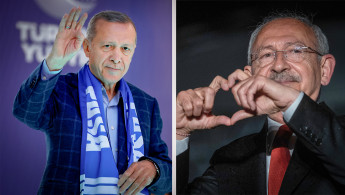Turkey presidential elections go to a run-off. What happens next?
Turkey's presidential race is now down to two men - Recep Tayyip Erdogan, who has led (and transformed) Turkey over the past two decades, and Kemal Kilicdaroglu, the septuagenarian opposition figurehead who commands a wide backing from the Kurdish left to nationalist right.
The battle for Turkey's leadership on Sunday saw Erdogan narrowly miss the 50 percent threshold needed to secure another term, while Kilicdaroglu fell short of expectations with a disappointing 45 percent of the vote.
This means another round of voting between the two contenders with the 5 percent share won by nationalist politician Sinan Ogan expected to play a vital role in which way the political battle goes.
Who is running?
President Recep Tayyip Erdogan, of the conservative Justice and Development Party (AKP), has effectively led Turkey for two decades, first as prime minister and then as president.
This period saw huge transformation in Turkey, with Erdogan winning praise for leading the country down a path of fast economic growth, particularly during the first decade of his rule.
He has been criticised for centralising power in the hands of the presidency (his current position) after a controversial referendum and for the jailing of thousands of suspected "Gulenist" opponents.
Kilicdaroglu of the Republican People's Party is leading an opposition alliance of mostly secularist and Kemalist parties.
His big tent alliance saw him enjoy a narrow lead during polling but slipped behind Erdogan by a near five percent margin after Sunday's vote.
What is a run-off?
If no candidate in presidential election secures more than 50 percent of the vote, then there is a second round of voting.
Sunday-Monday's results mean that Erdogan and Kilicdaroglu will face-off on 28 May and whoever wins will become Turkey's next president.
Both leaders have said they are ready for a run-off and will respect the outcome.
Which way could it go?
The backing of Kilicdaroglu by the People's Democratic Party (HDP) could prove a hindrance in the opposition candidate attracting the right-wing voters needed to become president.
Sinan Ogan won 5.2 percent of the vote in the election and if these voters go the way the nationalist politician commands, it could likely see either candidate win the presidency.
Ogan has already hinted that he might not lend his support to Kilicdaroglu due to backing he has received from the HDP, a party which is seen by many on the right as a front for the banned Kurdistan Workers' Party (PKK) militia.





 Follow the Middle East's top stories in English at The New Arab on Google News
Follow the Middle East's top stories in English at The New Arab on Google News


